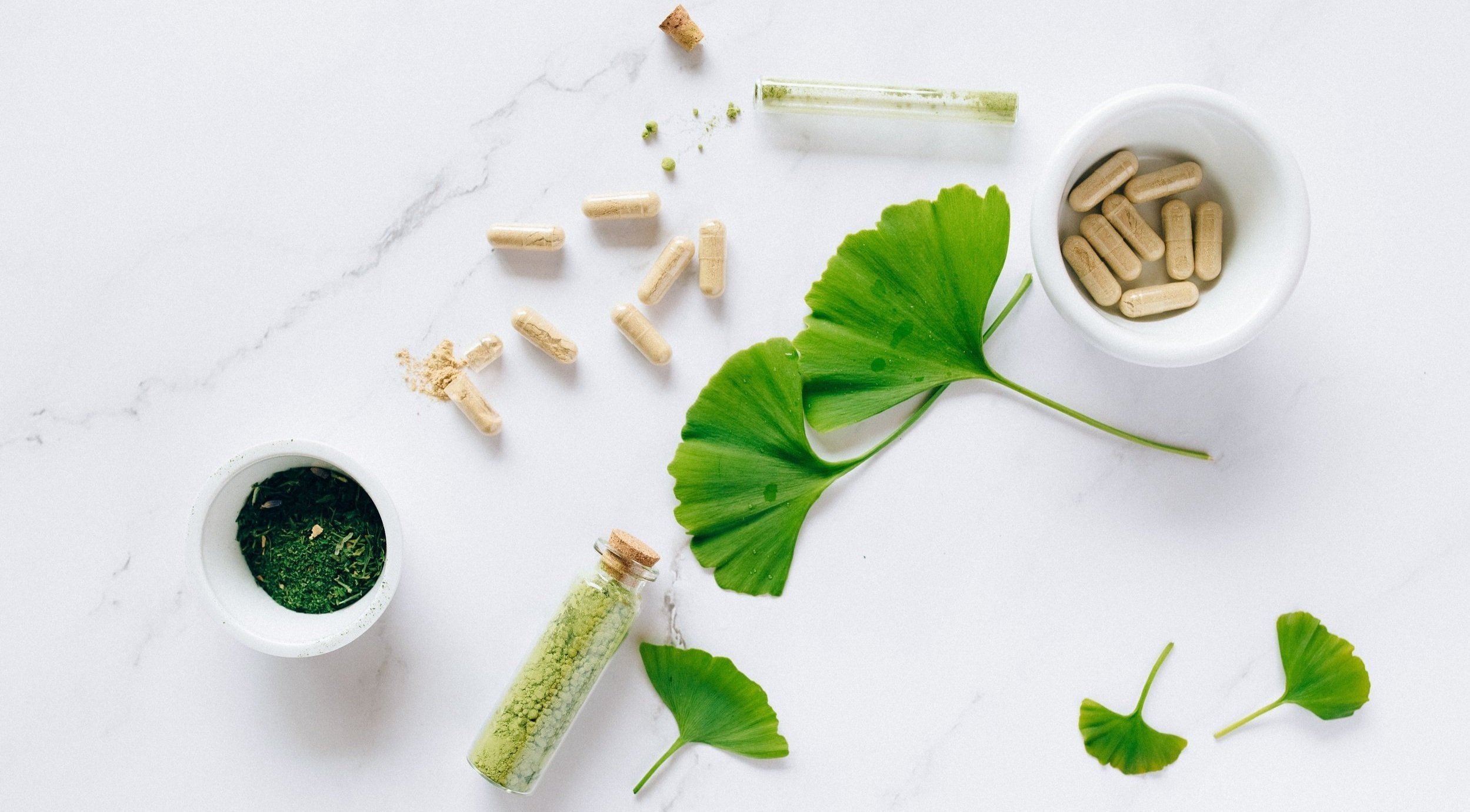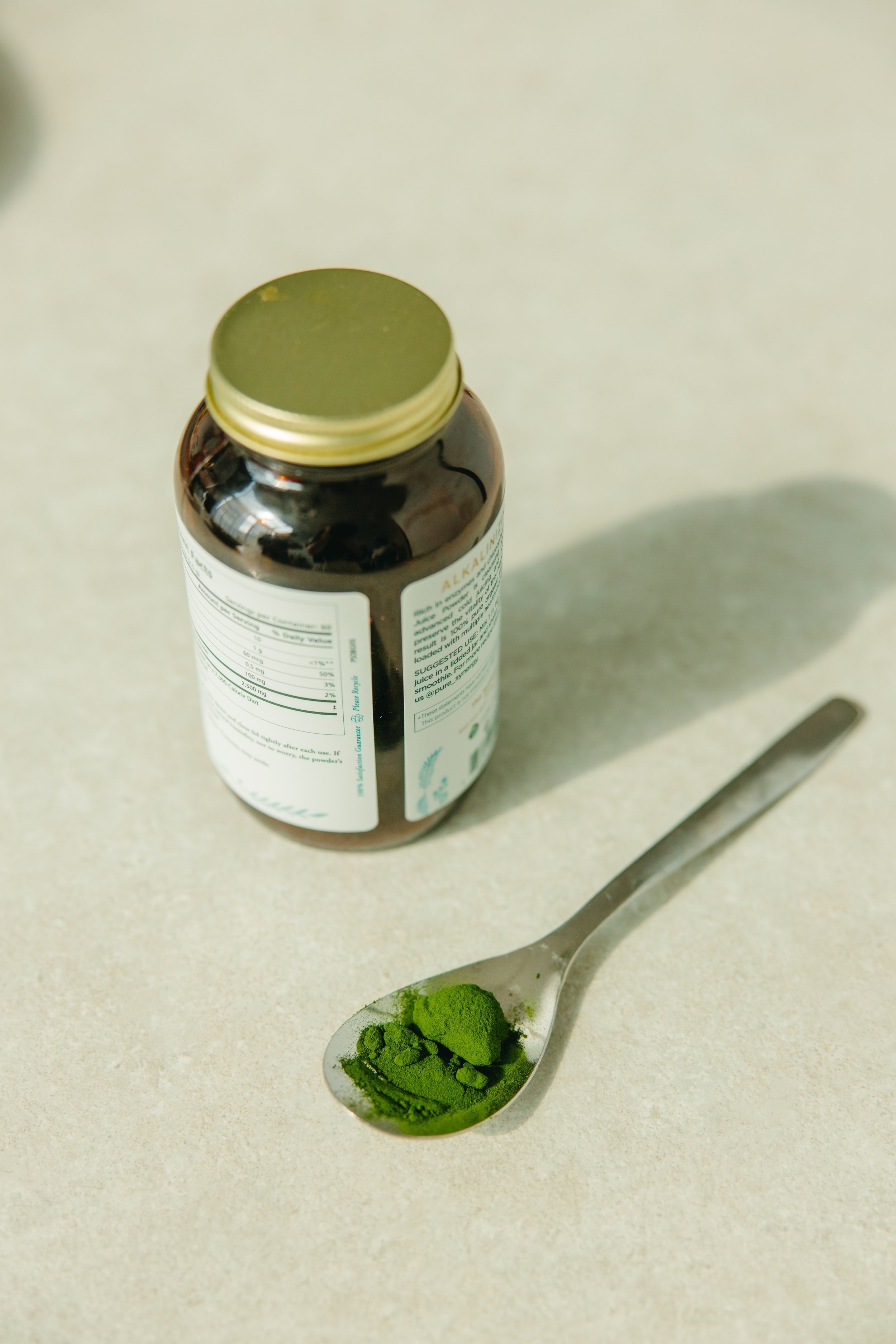Do supplements hold the key to easing PMS symptoms?
Author: Dr. med. univ. Martin Kiebler
In the previous blog posts of the premenstrual disorders series, we explained PMS & PMDD in short. In this post, we aim to explore alternative options to traditional drug therapy and explain how these supplements seem to function. The goal is to provide you with a better understanding of the available alternatives and how they can be beneficial within the therapy of PMS/PMDD. Among others, we will explore the effects of Ashwagandha, Magnesium, Vitamin B Complex, Calcium, and Agnus Castus.
How do supplements work in general?
Supplements considered for PMS/PMDD typically have specific targets, and aim to address symptoms and underlying factors associated with the condition. Some supplements focus on regulating hormone levels, such as estrogen and progesterone, while others aim to modulate neurotransmitter activity. Additionally, certain supplements possess anti-inflammatory properties and promote muscle relaxation. Mood stabilization is another beneficial aspect attributed to certain supplements. While some supplements seem useful for treating PMS/PMDD and show promising results in studies, others appear to have less or even no benefit in easing PMS/PMDD-related symptoms compared to placebo.
Let's have a look at what supplementation options we have at hand to potentially relieve symptoms:
Calcium - Nourishing the Nervous System and Muscles:
Calcium is primarily known for its role in maintaining healthy bones, but it also plays a significant role in neuromuscular function. Good quality evidence is present considering calcium as a promising supplement (see bibliography below). Adequate calcium levels are believed to calm the nervous system, improve mood, and reduce irritability during the days before menstruation. Furthermore, Calcium supports muscle relaxation, alleviating menstrual cramps and promoting overall comfort.
Ashwagandha - Relieving Stress
Ayurvedic medicine's traditional herb, Ashwagandha, also referred to as "Indian ginseng," is thought to have adaptogenic properties, assisting the body in adjusting to stress and promoting overall balance. It is believed to work by regulating cortisol, the stress hormone, thereby promoting a state of calmness. Ashwagandha's active compounds, such as withanolides, interact with the hypothalamic-pituitary-adrenal (HPA) axis – also known as the stress axis, which plays a crucial role in stress response. By modulating the HPA axis, Ashwagandha helps reduce anxiety, irritability, and mood swings associated with PMS/PMDD.
Magnesium - Relaxing Muscles and Uplifting Mood:
Magnesium, an essential mineral, plays a vital role in various body functions. Its muscle-relaxing properties can alleviate the discomfort of menstrual cramps and muscle tension during PMS/PMDD. Additionally, Magnesium contributes to the production of serotonin, a neurotransmitter known for its mood-enhancing effects. By increasing serotonin levels, Magnesium is believed to stabilize mood and improve overall well-being during the menstrual cycle.
Vitamin B Complex - Energizing the Body and Mind:
The B vitamins, including B1, B2, B6, and B12, form a complex network of nutrients that support numerous processes in your body. Vitamin B6 in particular, is involved in the production of neurotransmitters like serotonin and gamma-aminobutyric acid (GABA) – check out the next blog post if you want to discover more about the origins of PMS/PMDD including serotonin and GABA. Vitamin B6 helps alleviate the emotional symptoms associated with PMS/PMDD, such as irritability and mood swings, by promoting the synthesis of these calming neurotransmitters. Additionally, B vitamins contribute to energy production, which can battle tiredness and weakness often experienced during this time.
Agnus Castus (Chasteberry) - Balancing Hormones:
Agnus Castus, derived from the fruits of the chaste tree, has a long history of use in addressing hormonal imbalances. It is believed to act on the brain (hypothalamus and pituitary gland), influencing the regulation of various hormones involved in the menstrual cycle. Agnus Castus lowers the hormone prolactin's release and promotes a balance between estrogen and progesterone, which can lessen PMS/ PMDD symptoms like breast tenderness, mood swings, and water retention.
Evening Primrose Oil - Relieving Breast Tenderness:
Evening Primrose Oil (EPO) is derived from the evening primrose plant's seeds and contains a high concentration of gamma-linolenic acid (GLA), an omega-6 fatty acid. GLA is believed to have anti-inflammatory properties and can help regulate hormone production, potentially easing symptoms associated with PMS/PMDD. EPO often reduces breast tenderness, bloating, irritability, and mood swings. While researchers are discordant on EPO's effectiveness for PMS/PMDD, some studies suggest that it may provide relief for certain women.
St. John's Wort - Easing Depressive Symptoms and Enhancing Mood:
St. John's Wort is a herb commonly used to address symptoms of depression and mood disorders not only in PMS/PMDD. It contains several active compounds, including hypericin and hyperforin, which are believed to influence neurotransmitter levels, including serotonin, dopamine, and norepinephrine. By modulating these neurotransmitters, St. John's Wort may help alleviate depressive symptoms and improve overall mood. However, it's important to note that St. John's Wort has a whole array of interactions with other medications such as antidepressants, oral contraceptives, and blood thinners, so it is crucial to consult your doctor before taking it.
Omega-3 Fatty Acids - Reducing Inflammation and Supporting Brain Health:
Omega-3 fatty acids, including eicosapentaenoic acid (EPA) – do not confuse with above mentioned EPO! - and docosahexaenoic acid (DHA), are essential fats that play a crucial role in various body functions, including brain health and inflammation modulation. Research suggests that omega-3 fatty acids may positively impact mood and emotional well-being, potentially reducing symptoms of depression and anxiety. While the evidence regarding the direct effect of omega-3 fatty acids on PMS/PMDD is limited, their anti-inflammatory properties and brain health benefits make them a potential supportive addition to managing PMS/PMDD symptoms.
Conclusion:
These supplements aim to treat a variety of PMS/ PMDD symptoms, such as hormonal balance, muscle relaxation, mood stabilization, and inflammation reduction. Although some supplements have shown encouraging results, it's crucial to realize that different people may respond differently. If you are free from any underlying diseases, feel free to try out these supplements. However, if you have existing health conditions, a family history of illnesses, or if you are currently taking regular medication, we strongly recommend, that you consult a doctor before including these supplements in your daily routine. In a nutshell, supplements are not medical drugs - there is no magic bullet here. Find out what works for you and give it some time.
Here’s a summary of some supplements and the evidence for their potential use as a treatment for PMS and associated symptoms:
Table 1. Summary of evidence for selected supplements related to their potential use for the treatment of PMS and PMS symptoms. (Modified from Green et al. 2017)
This post is part of the PMS blog series wrote by Dr. med. univ. Martin Kiebler.






